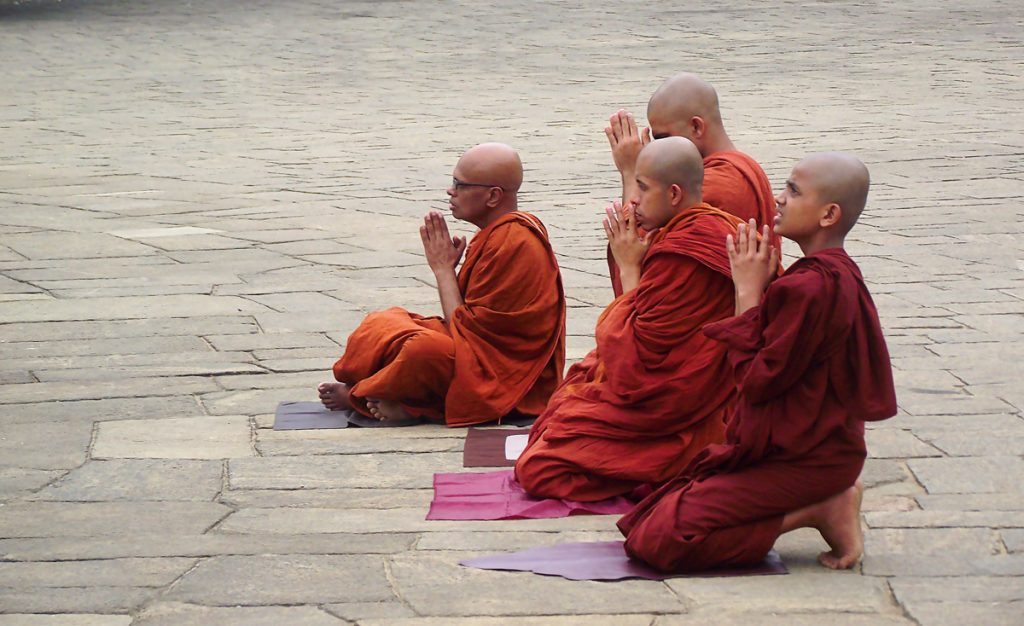Up. Down.
Up. Down.
Up. Down.
Barely awake, I tell myself to “just do it” while stealing a quick glance back at the bed. The sleeping bag looks so inviting. Thoughts run through my head about why it would be better after it gets light out. Normally an expert procrastinator, susceptible to excuses of any sort, even I can’t get away with rationalizing in this case. At 3:20 in the morning, I am alone in the middle of the woods, but it’s not like there’s anywhere else I have to be. I continue with the bows.
Up. Down.
Up. Down.
Up. Down.
Three hundred times. Each time a bow has been completed, I move one bead on my mala to keep count while repeating the mantra in my mind. The rhythm of the movement and the sound of the mantra working in tandem soon cut through all the foggy thinking and wake me up.
We in the West don’t bow to anything or anyone. Not to God, not to Buddha, not to our parents, not to each other. It would never occur to us to bow, because this is a democracy and we are all equal. In the East, however, everyone is always bowing to everyone else. It is a sign of respect, a greeting, a religious practice, and simply a chance to pause.
Bowing is the act of our small self bowing to our true self. Our small self is the “I, my, me” that feels like a separate person. Our true self has no idea of being separate, because it is before all ideas and thinking. Each bow is a chance to wake up from the illusion that we are somehow separate from the universe. In the physicality of palms touching the mat, of knees on the ground, and of standing up again, there is only the activity of bowing.
Zen Master Seung Sahn, in his inimitable English, says bowing is the “number-one quick way to make your karma disappear.” For twenty or more years he has done a thousand bows a day, no matter what. Sick, tired, traveling, on trains, in hotel rooms . . . he never misses them. Just watching him do that day in and day out has itself been a big teaching.
And here I am, young and strong. After only three hundred bows my legs are shaking like two jelly gummy worms. The schedule is proving to be a formidable master, and it’s only the first activity of the first day.
Thirsty now.
A cup of tea would be good.
From The Wisdom of Solitude: A Zen Retreat in the Woods, © 2003 by Jane Dobisz. Reprinted with permission of HarperCollins.
Thank you for subscribing to Tricycle! As a nonprofit, we depend on readers like you to keep Buddhist teachings and practices widely available.
